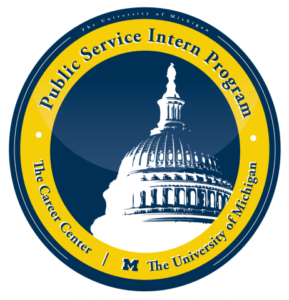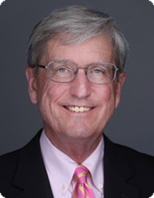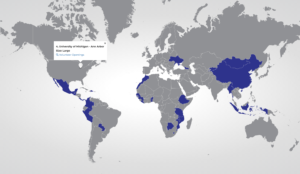 Betsy Levine Lassar and Mike Posner had the idea for the Washington Internship Program and met with leaders on campus to propose it for students interested in public service internships. They reached out to key people in senior leadership at the University who supported it, including Bill Audiss in Career Planning & Placement, Barbara Newell in the President’s Office, and U-M President Robben Fleming.
Betsy Levine Lassar and Mike Posner had the idea for the Washington Internship Program and met with leaders on campus to propose it for students interested in public service internships. They reached out to key people in senior leadership at the University who supported it, including Bill Audiss in Career Planning & Placement, Barbara Newell in the President’s Office, and U-M President Robben Fleming.
In Fall 1969, the students created a plan and budget to ask for funds of $9,000 to start it. The U-M football team went to the Rose Bowl and the Michigan Daily had an article in January 1970 that the Alumni Association had a $9,000 surplus from their trip to Pasadena. Mike walked over to the Alumni Association, spoke with Director Bob Forman, and walked out with a check for $9,000 to start the Washington Internship Program!
In his sophomore year, Mike traveled to DC and scouted out internships on the Hill (Phil Hart and Don Riegel), think tanks, NBC, and other employers. Students were very eager to participate and had 18-20 in the first group. Since then, the program changed its name to the Public Service Intern Program and continued to grow, with approximately 3,000 students participating. We have heard that applicants to the University of Michigan are writing their admission essays about PSIP.
Mike Posner attended the PSIP Homecoming Reception in Fall 2018 and spoke about how proud he is that the intern program has flourished. He said it was the most impactful thing he participated in during his Michigan days and learned a lot from it. Both he and Betsy have had illustrious careers in the public sector and we are very proud of them!
“It is so heartening to know that the internship program has influenced so many lives.” – Betsy Levine Lassar, Chicago

 After two years at Michigan as a journalism major, I heard about and was accepted into the
After two years at Michigan as a journalism major, I heard about and was accepted into the 
